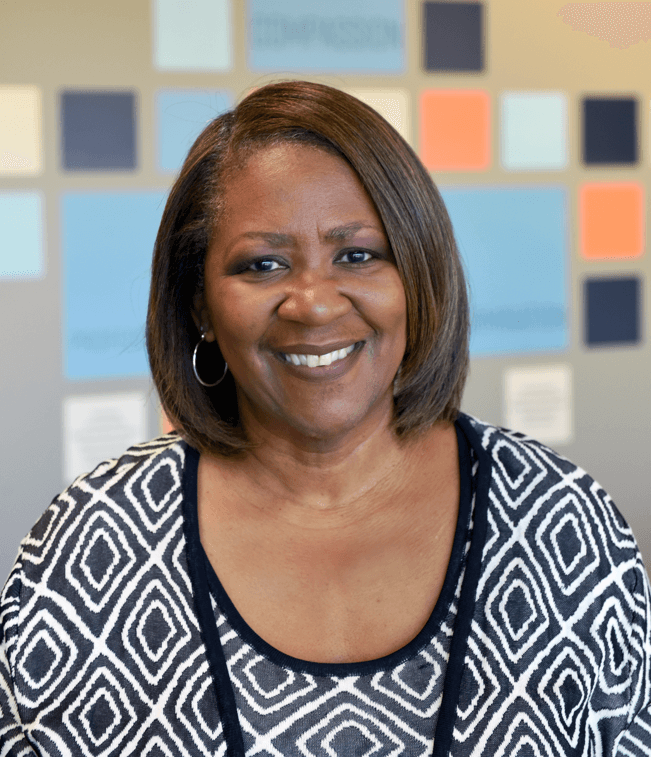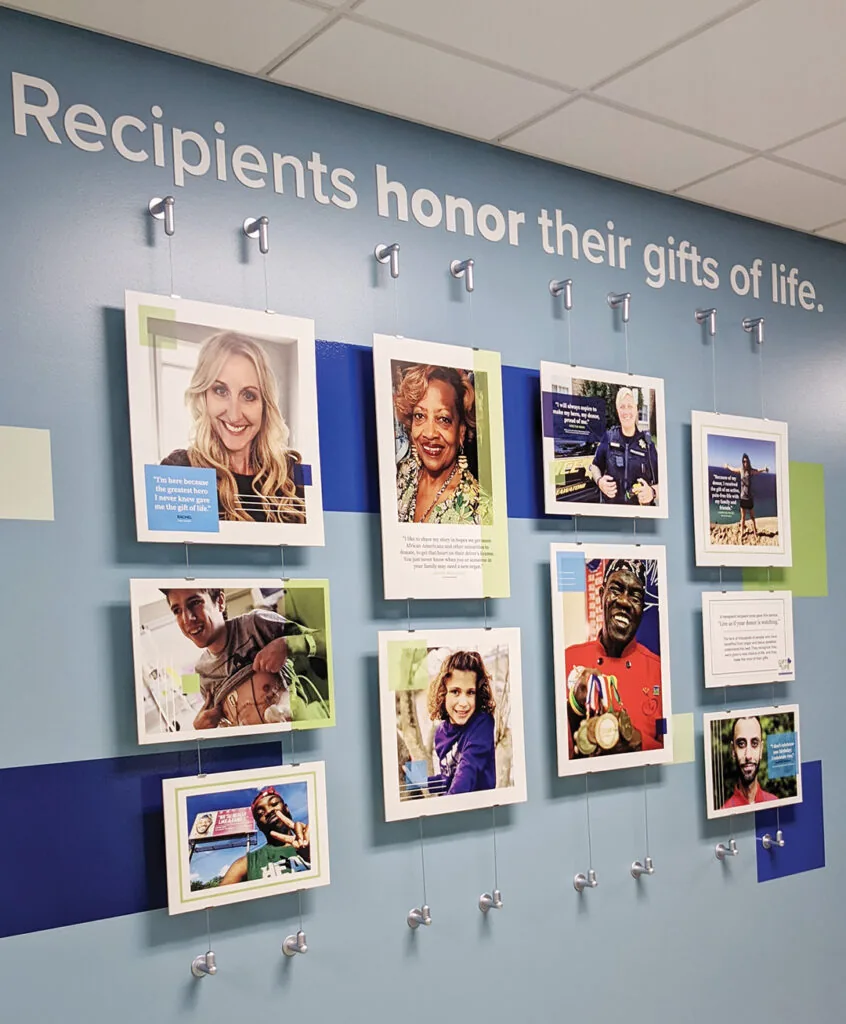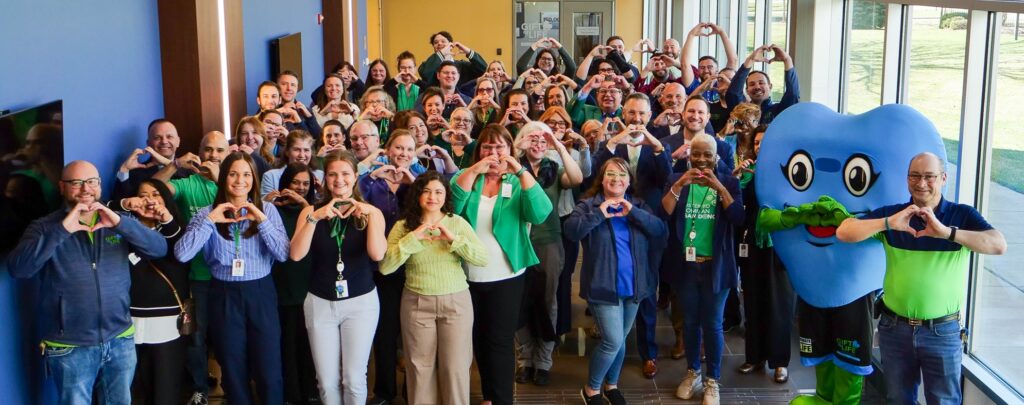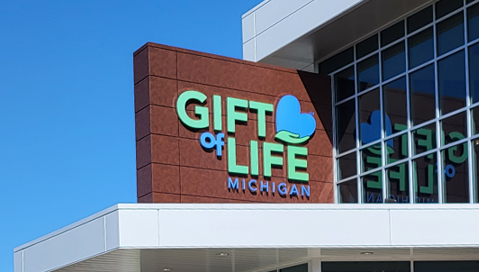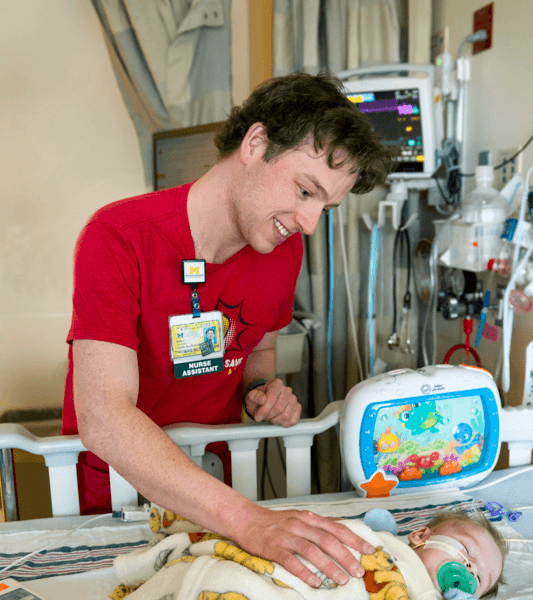As a busy manager in Detroit-area hospital emergency departments back in the 1990s and early 2000s, Sheila Alston read letters to her staff from Gift of Life Michigan.
She wanted those triage nurses and other ER staff to hear how some of the patients they couldn’t save gave new life to others. She knew those letters would be encouraging for her staff and demonstrate how important their calls to Gift of Life were.
“We made referrals to Gift of Life from the ER back when that wasn’t really happening at many hospitals,” she said. “I always thought, ‘I’m going to work there someday.’ I needed to know that something I did made a difference. And I wanted to be there for someone who was losing a loved one.”
After two decades of clinical experience as an RN and working in management, Sheila’s dream came true in 2003 when she accepted a position with Gift of Life as a donation coordinator. The new position allowed her to change the life course for patients on the waiting list.
Frontlines of donation
She was on the frontlines of donation — responding to hospital referrals, talking with families and more.
Sheila remembers her first conversation with a gravely ill patient’s family of about 25 people. “I didn’t get authorization, but I got them to all sit down and I taught them about donation. That was enough that day.”
She heard a lot of yeses from grieving families. In fact, after talking with Sheila, about nine out of 10 families of unregistered donors wanted donation on behalf of their loved ones. She advanced to hold various leadership positions at Gift of Life, including director of clinical operations for organ cases.
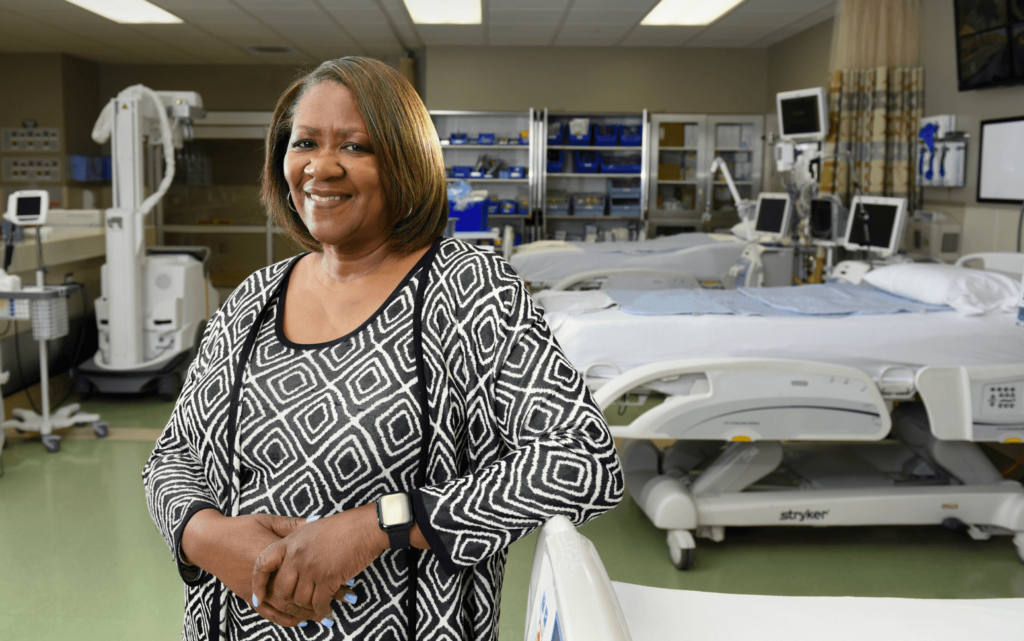 More than 20 years and thousands of lives saved later, Sheila is still helping deliver gifts from generous donors. Her work has shifted to a role as senior performance improvement specialist in the Quality Division.
More than 20 years and thousands of lives saved later, Sheila is still helping deliver gifts from generous donors. Her work has shifted to a role as senior performance improvement specialist in the Quality Division.
The position is unique and fits her.
“Sheila’s clinical knowledge is surpassed only by her passion for people and to do the right thing well,” said Bruce Nicely, VP, donation optimization at Gift of Life. “She is passionate, empathetic, and a mentor.
“Organ and tissue donor families remain connected with Sheila years later.”
Sheila spends her days looking for donation potential within hospital electronic medical records.
She studies cases that Gift of Life closed two days earlier for a variety of reasons, including the best reason: The patient fully recovered. But sometimes a patient declines drastically. If that happens, Sheila is there to alert teams in the field. That’s particularly important for patients whose final wish is to give new life to others.
“That doesn’t happen a lot, but every donor represents another patient’s life that can be saved,” she said. “So, if I’ve found two this year, I’m happy.”
Touching lives
Sheila also is acutely aware that the Michigan Organ Donor Registry gives residents the power to document their decision to help others and removes the decision-making burden from family members: “Everywhere I go, I ask people if they’re signed up.”
Sheila is known by some veteran staffers as Mama Bear and for being a mentor to colleagues. Throughout her career, she has developed staff into various leadership roles, including some who are now leaders at other organ procurement organizations in the country.
“I have made a difference and that’s all I ever wanted,” Sheila said.
DAISY Award caps her career
Sheila was the last person expecting what happened in September at the جمعية شؤون التعددية الثقافية في زراعة الأعضاء (AMAT) annual meeting in San Diego.
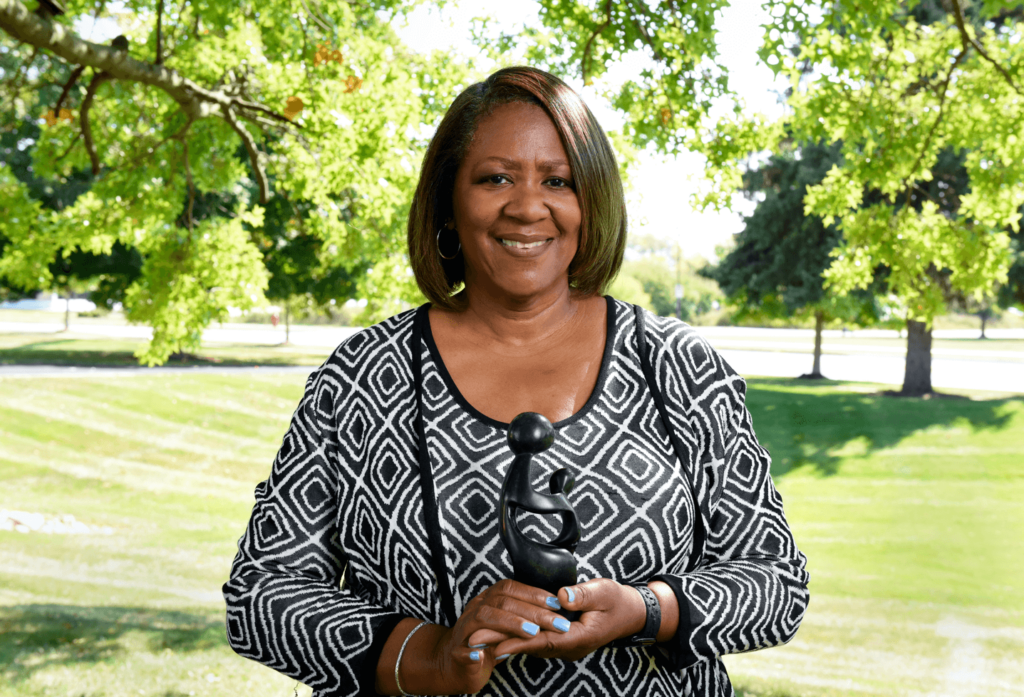 AMAT surprised her with the DAISY Award for Extraordinary Nurses — an honor recognizing nurses for their compassionate care for patients and their families. It was the first time in AMAT’s 32-year history that it handed out a DAISY Award.
AMAT surprised her with the DAISY Award for Extraordinary Nurses — an honor recognizing nurses for their compassionate care for patients and their families. It was the first time in AMAT’s 32-year history that it handed out a DAISY Award.
“Sheila was nominated by several individuals, which is a testament to her exceptional contributions,” said Dorrie Dils, Gift of Life Michigan’s president and CEO. “We are incredibly proud of Sheila’s distinguished career and deeply grateful to AMAT for extending this prestigious award to donation professionals.”
Sheila said she was moved by the honor: “It was especially meaningful to be recognized in front of my peers.”


